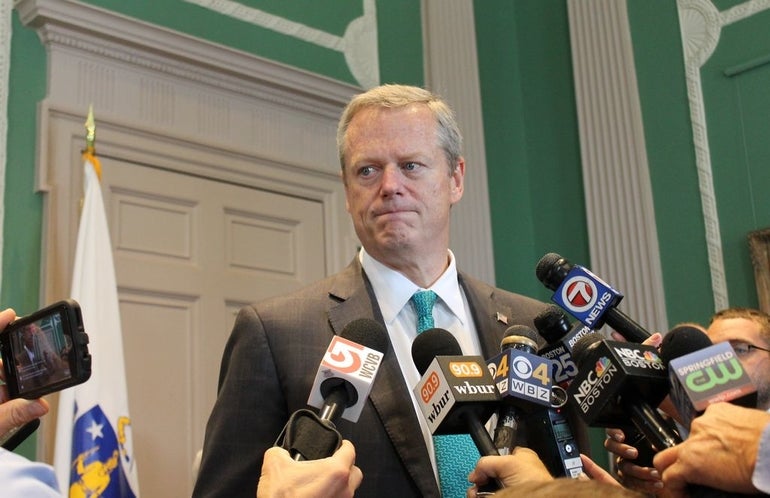The heralded law that made trafficking in the deadly synthetic opiate fentanyl a new crime in 2015 has proven to be “unenforceable,” according to the Baker administration, police and prosecutors who urged legislators Tuesday to act quickly to fix the law so that those dealing fentanyl can be more harshly punished.
Gov. Charlie Baker join members of the local law enforcement community to highlight the problem with the fentanyl trafficking law that he signed three years ago, and desire of police and prosecutors to quickly close the loophole.
“The House and the Senate both agree, based on conversations that many of us have had with leaders in both branches, that this fentanyl issue needs to be addressed and it should be addressed with some degree of urgency and I think it’s important that it get done quickly,” Baker said.
Under the 2015 law, someone dealing heroin laced with fentanyl could only be prosecuted for trafficking fentanyl if the confiscated mixture contained at least 10 grams of the synthetic drug. Public Safety Secretary Dan Bennett, however, said the State Police crime lab is only equipped to determine the presence of fentanyl, not the quantity of the substance in a mixture.
The fentanyl trafficking statute, which carries a penalty of up to 20 years in prison, differs from other trafficking laws, such as heroin trafficking, which can be charged if a mixture of 18 grams or more contains even a trace of heroin.
“Unless you change the legislation, you’re never gonna get someone for fentanyl trafficking in Massachusetts,” Bennett said at a press conference at Haverhill Police headquarters.
A total of 1,977 people died of suspected or confirmed opioid overdoses in 2017, after 2,155 deaths in 2016. Fentanyl was present in 83 percent of the overdose deaths in 2017, up from about 30 percent in 2014.

